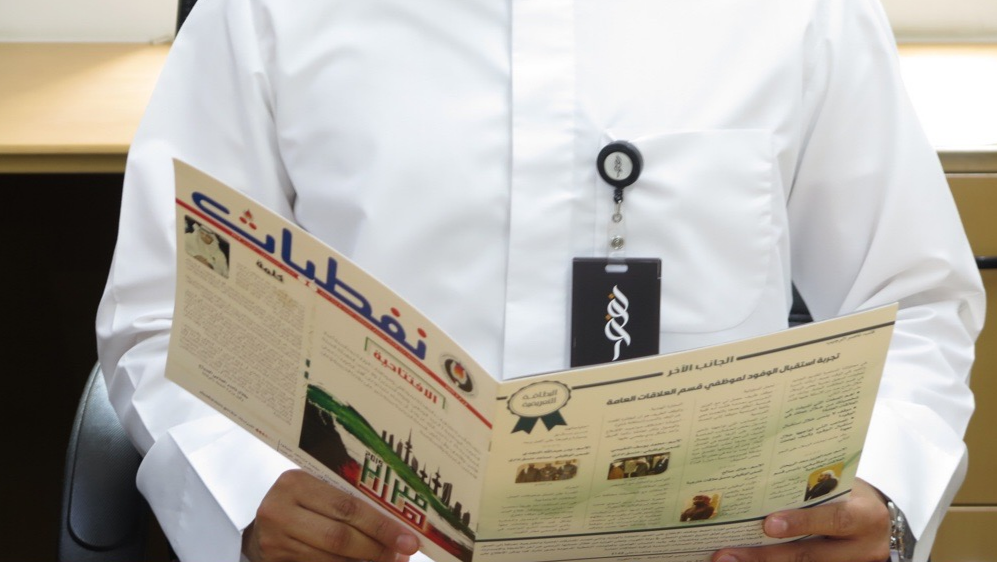
Kuwait hosted on April 17 to 19 the Asian oil and energy round-table meeting, with the participation of 30 bodies, including a number of international organizations concerned with oil, gas and energy. Our country is prepared to host this important event, through which the Asian oil producing and consuming countries participate for purposes of consultation, dialogue and putting the visions on the future of the oil industry.
the participating countries represented at the meeting, by oil and energy ministers and specialized delegates to foresee the future of oil, gas and energy, and introduce a full vision useful for all participants in their future plans. Many of the global actors also took part in this meeting, such as the Organization of Petroleum Exporting Countries (OPEC) and the International Energy Forum.
It is noteworthy that the round-table meeting is held once every two years in one of the Asian oil countries. It was hosted first time in india 2005 then by Saudi Arabia in 2007 and then was held in Japan in 2009. The meeting hold as planned in Kuwait, where 28 countries are expected to participate in addition to the host country.
The participating countries are:
(Azerbaijan, Brunei, Bahrain, China, Iraq, India, Iran, Indonesia, Japan, Jordan, Kazakhstan, Korea, Oman, Philippines, Qatar, Russia, Turkmenistan, Syria, Saudi Arabia, Turkey, Thailand, UAE, Vietnam, Yemen, in addition to Kuwait) and the International Energy Agency, OPEC and International Energy Forum will also participate.
Chair's Summary:
The 4th Asian Ministerial Energy Roundtable - Kuwait City, April 18, 2011
- Energy ministers of 18 Asian countries and representatives of 3 international organizations gathered in Kuwait for the 4th Asian Ministerial Energy Roundtable.
- Participants expressed their solidarity and deepest sympathy to Japan and victims of the earthquake and tsunami that devastated Japan early March 2011, hoping that Japan will overcome this tragedy and recover soon.
- To show the solidarity with Japan, the State of Kuwait upon the guidance of His Highness the Emir, Sheikh Sabah Al-Ahmad Al-Sabah, the Cabinet Ministers have decided to contribute 5 million barrels of crude or by products to Japan.
Asian Energy Outlook
- Participants concurred that the strong' growth in primary energy demand that has occurred in the Asian region over the last decade is set to continue over the next decades even with higher energy efficiency, with Asian countries accounting for the lion share of the total energy demand growth.
- Participants noted that all energy sources will be needed to meet future global energy requirements and that despite the recent unfortunate accident in Japan, nuclear power will remain an important component of the global energy mix. In parallel, they emphasized the importance of improving nuclear power plants safety and security, as well as the development of international safety guidelines, communication towards, and information of, the general public.
Market volatility
- Participants discussed the resurgence of oil markets volatility since the beginning of 2011. They discussed short-term market developments and reasons behind prices rally. There was a consensus that geopolitical concerns are overstated since physical oil markets are well supplied, with comfortable levels of spare capacity and stocks. However, a concern was voiced by Asian Ministers that elevated oil prices if persisted, may hamper the global economic recovery. Producing and consuming countries are committed to do everything they can collectively to limit excessive oil price volatility.
- Participants recognized that excessive fluctuations in oil prices are undesirable for both energy producers and consumers and called on IEA, IEF and OPEC, to continue their joint effort to better understand the linkages between physical and financial markets and promote the dialogue of physical market players with financial regulators across the globe as specific regulation on paper oil markets is put in place. Ministers called on financial regulators to pro-actively reign in speculation that exacerbates oil price swings.
- Ministers also expressed strong support to the Joint Organizations Data Initiative (JODI), as a means to enhance oil market data transparency, thus contributing to market stability, and to significantly improve the performance of Asian countries in JODI-oil in terms of timeliness, completeness and consistency of data submissions, including stock data. They also endeavor to help implement the extension of JODI to gas-related data and investment plans according to the time-table proposed by the JODI organizations.
Energy Efficiency
- Participants concurred that energy efficiency is largely recognized as the most cost effective mean to meet growing energy demand whilst contributing to climate change mitigation and economic growth.
- The Roundtable affirmed that collaboration among Asian countries, as well as between industry and governments can help further improvements in energy use and efficiency, through exchange of experience and sharing best practice, dissemination of technology and coordination of policies which can be an important tool in addressing the challenge of rising demand.
- The role of sound energy pricing in managing energy demand and supporting energy efficiency in Asian countries, consuming and producing alike, was debated by Participants. They recognized the importance of market-linked pricing while noting the economic and social goals of targeted subsidies. Tackling inefficient energy subsidies that encourage wasteful consumption is necessary. Efforts to reduce energy subsidies need to take into account economic, social and commercial sustainability, as well as environmental concerns. This will help to motivate countries to pursue recommendations for their own immediate and long-term benefits.
- Participants welcomed the IEF Symposium on Energy Efficiency in Developing Countries to be held in Jakarta, Indonesia on 21-22 June 2011, to discuss drivers and barriers to energy efficiency in developing countries, review policies and share best practices with regard to energy efficiency. Ministers look forward to discussing findings and recommendations of this Symposium at the 13th IEF Ministerial in Kuwait in 2012.
Investment
- Meeting future energy demand in Asia requires that investment throughout the supply chain is made in timely manner. Participants agreed that adequate investment framework in both producing and consuming countries, is an important factor for promoting so much needed investment in the region. The meeting recognized that investment should also aim at making energy services more affordable and accessible to the poor.
- Underinvestment or delays in investment could lead to shortfalls in the incremental capacity required to meet demand, resulting in price hikes, while overinvestment may lead to excessive over-capacity. Therefore, the most pressing challenge facing the industry is to invest in timely capacity expansion taking the long-term view despite uncertainties surrounding demand.
- Participants discussed the importance of cooperation between NOCs and IOCs in enhancing energy security for both producers and consumers. They welcomed the results of the 2nd IEF NOC-IOC Forum this month and affirmed the importance of cross-investment throughout the value chain in this regard, noting the successful long-term partnerships based on mutual trust and respect involving companies from producing and consuming countries across the region, in both upstream and downstream segments of the industry.
- The issue of transparency has gained wide credence in the aftermath of the 2008 financial crisis with many organizations such as G8, G20, and the IEF calling for improved transparency and appropriate regulation as key elements in efforts to enhance the functioning of the oil market and its price discovery function. Transparency in oil markets however has more than one dimension. Improving transparency in the physical as well as the financial markets is important to understanding oil market dynamics and enhancing the price discovery function.
- Participants look forward to discussing further ways of enhancing the; producer-consumer dialogue at the 13th IEF Ministerial in Kuwait in 2012. The recently ' adopted IEF Charter creates a solid foundation for a productive dialogue that fosters greater mutual understanding between producing and consuming countries on key energy policy issues and, where possible, narrows the differences in views and helps build trust in policy intentions.
- Participants underlined the benefits of Asian Ministerial roundtables as platform bringing Asian producing and consuming nations together to discuss issues of common interest as well as collaborative avenues to address them. They agreed to convene again at the 5th Asian Ministerial Energy Roundtable in Republic of Korea in 2013.





